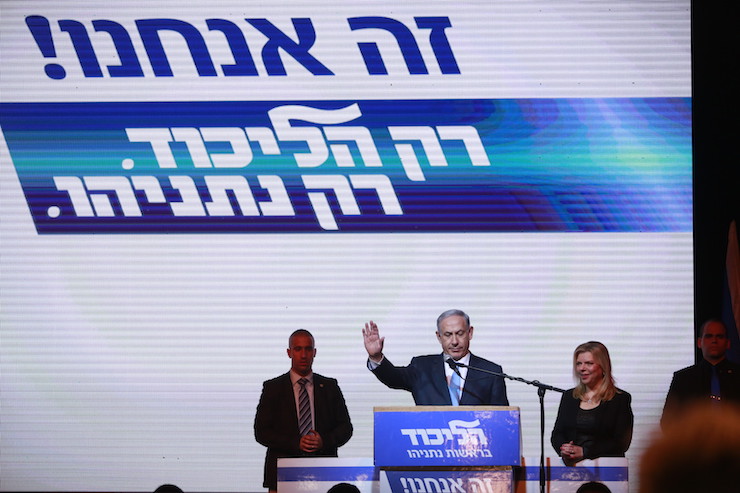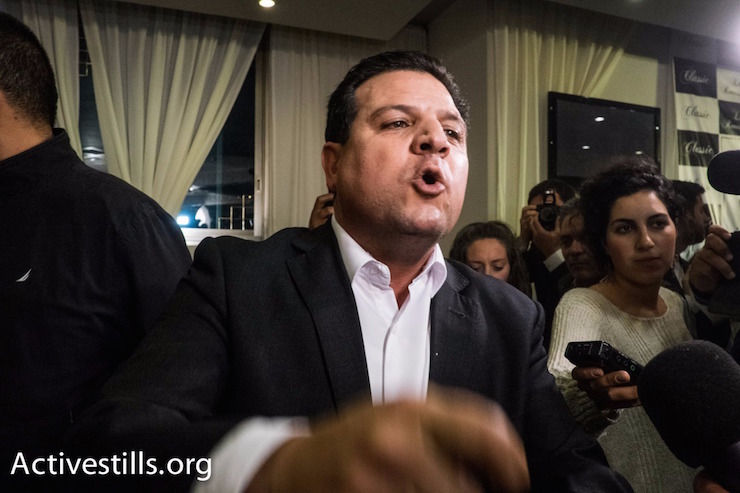Netanyahu has best chances to form a government but President Rivlin says will work for a unity government. (Updated below with 90% of votes counted.)

Update (4:30 a.m. local, 10 p.m. EST):
The following is the expected distribution of seats with over 90 percent of votes counted as calculated by Nehamia Gershuni, who runs independent polling site Project 61:
±93% of real results. 04:21 pic.twitter.com/JTa5ui4PwK
— Nehemia Gershuni A. (@Nehemia_G) March 18, 2015
***
Prime Minister Benjamin Netanyahu and challenger Isaac Herzog came out tied with 27 seats out of 120 in the first exit polls in Israeli elections on Tuesday.
The Joint List received 13 seats in the initial exit polls, an increase of two seats for the Arab parties that individually had 11 seats in the past Knesset. The Joint List will most likely be the third-largest party in the next Knesset.
With the numbers released early on election night it would be much easier for Netanyahu to form a government, although President Reuven Rivlin said Tuesday night that he would work for a unity government.
The president grants one Knesset member the right to form a government so his inclinations have significant weight.
With even more power than Rivlin, however, is Moshe Kahlon of the Kulanu party. With nine seats and not clearly committed to either the right- or left-wing camp, Kahlon can — at least in theory — anoint the next prime minister. He is expected to initially support Netanyahu but is possible that he would also join a Herzog-lead government.
Naftali Bennett’s Jewish Home settler party shrunk significantly to eight seats. Even smaller was Avigdor Liberman’s Israel Beitenu party, which had only five seats.
Left-wing Meretz held steady with five seats, dropping only slightly from its current six. Earlier in the day there were rumors that the party would not cross the threshold and make it into the Knesset.
The two ultra-Orthodox parties, Shas and United Torah Judaism were predicted to have 13 seats between them.
Voter turnout in the election was 71.8 percent, over 4 percent more than in the previous elections. According to the Joint List, turnout among Arabs was reportedly up to 67 percent, a dramatic rise.



